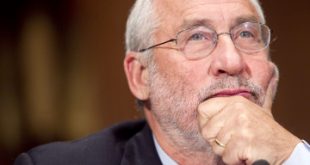Mainstream economics — an explanatory failure To achieve explanatory success, a theory should, minimally, satisfy two criteria: it should have determinate implications for behavior, and the implied behavior should be what we actually observe. These are necessary conditions, not sufficient ones. Rational-choice theory often fails on both counts. The theory may be indeterminate, and people may be irrational. In what was perhaps the first sustained criticism...
Read More »Pluralism in economics
Many mainstream economists today try to give a picture of modern economics as a pluralist enterprise. But the change and diversity that gets their approval only takes place within the analytic-formalistic modeling strategy that makes up the core of mainstream economics. You’re free to take your analytical formalist models and apply it to whatever you want — as long as you do it with a modeling methodology that is acceptable to the mainstream. If you do not follow this...
Read More »Some unsettled questions in macroeconomic theory
Some unsettled questions in macroeconomic theory [embedded content]
Read More »James Tobin
James Tobin was a leading - perhaps the leading - American neo-Keynesian macroeconomist in the era of Keynesian dominance after World War II that extended through to the early 1970s. Along with growth theorist Robert Solow and micro and trade theorist Paul Samuelson, the three substantially shaped what became known as the neoclassical synthesis which [...]
Read More »What is mainstream economics?
What is mainstream economics? The reason you study an issue at all is usually that you care about it, that there’s something you want to achieve or see happen. Motivation is always there; the trick is to do all you can to avoid motivated reasoning that validates what you want to hear. In my experience, modeling is a helpful tool (among others) in avoiding that trap, in being self-aware when you’re starting to let your desired conclusions dictate your...
Read More »Economics — the triumph of ideology over science
Economics — the triumph of ideology over science Research shows not only that individuals sometimes act differently than standard economic theories predict, but that they do so regularly, systematically, and in ways that can be understood and interpreted through alternative hypotheses, competing with those utilised by orthodox economists. To most market participants – and, indeed, ordinary observers – this does not seem like big news … In fact, this...
Read More »Economics — non-ideological and valuefree? I’ll be dipped!
Economics — non-ideological and valuefree? I’ll be dipped! I’ve subsequently stayed away from the minimum wage literature for a number of reasons. First, it cost me a lot of friends. People that I had known for many years, for instance, some of the ones I met at my first job at the University of Chicago, became very angry or disappointed. They thought that in publishing our work we were being traitors to the cause of economics as a whole. David Card Back...
Read More »What is truth in economics?
What is truth in economics? In my view, scientific theories are not to be considered ‘true’ or ‘false.’ In constructing such a theory, we are not trying to get at the truth, or even to approximate to it: rather, we are trying to organize our thoughts and observations in a useful manner. Robert Aumann What a handy view of science. How reassuring for all of you who have always thought that believing in the tooth fairy make you understand what happens to...
Read More »What it takes to make economics a real science
What it takes to make economics a real science What is science? One brief definition runs: “A systematic knowledge of the physical or material world.” Most definitions emphasize the two elements in this definition: (1) “systematic knowledge” about (2) the real world. Without pushing this definitional question to its metaphysical limits, I merely want to suggest that if economics is to be a science, it must not only develop analytical tools but must also...
Read More »Statistical significance tests do not validate models
Statistical significance tests do not validate models The word ‘significant’ has a special place in the world of statistics, thanks to a test that researchers use to avoid jumping to conclusions from too little data. Suppose a researcher has what looks like an exciting result: She gave 30 kids a new kind of lunch, and they all got better grades than a control group that didn’t get the lunch. Before concluding that the lunch helped, she must ask the...
Read More » Heterodox
Heterodox








